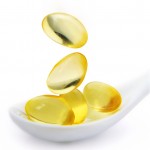Stress
Millions of years ago, our bodies were designed to react quickly to danger. Like wild animals we were on constant alert so we could run or fight if threatened. When your brain thinks your life is in danger it stimulates the release of adrenaline and cortisol
This fight or flight response is incredibly clever and thoroughly efficient. It provides instant energy for 5-10 minutes allowing you to react swiftly to dangerous situations.
These days, many of us live under chronic stress. But our bodies can’t distinguish between late trains, missed appointments, spiralling debt, infuriating work colleagues, family disputes and the truly life-threatening stress it gears up to challenge. So it reacts exactly the same as it’s always done.
Stress can give you a number of symptoms including moods swings, anxiety, irritability, nervousness, aggressive outbursts, fatigue, palpitations, forgetfulness, anxiety, confusion, inability to concentrate, crying spells, insomnia, headaches, muscle cramps, digestive problems and food cravings.
You may not be able to control the stress but you can control how it affects you physically and also you can make sure you are not making it worse
What are your choices?
 There is a chance that your pattern of eating is subconsciously telling your body that it is under even more stress. If your blood sugar levels fluctuate (as they do even more so for women), your body will be releasing adrenaline which is the same hormone it releases when you are under stress.
There is a chance that your pattern of eating is subconsciously telling your body that it is under even more stress. If your blood sugar levels fluctuate (as they do even more so for women), your body will be releasing adrenaline which is the same hormone it releases when you are under stress.
Try to keep your blood sugar levels and energy levels stable by eating something every three hours. Eat breakfast, lunch and dinner plus a snack mid-morning and one mid-afternoon, with no longer than three hours between.
This will stop those roller-coaster highs and cravings for sweet foods. Because your blood sugar isn’t allowed to drop, your body will no longer have to ask you for a quick fix. As your blood sugar steadies, so will your mood swings. As your adrenaline levels reduce you will automatically start to feel happier and calmer inside.
Supplements

B vitamins especially vitamin B5
The B vitamins are known as your ‘stress’ vitamins. It is important to take them when you are working on nourishing and calming the adrenal function When you are under stress you use up a lot of your B vitamins especially vitamin B5. The B vitamins are water-soluble vitamins, so your need to eat them in your diet on a day to day basis (or get them from food supplements) because they are not stored in your body.
Vitamin B5 (pantothenic acid) is the most important B vitamin for your adrenal function. When you are under constant stress, your body’s need for this vitamin will rise as it uses it to make the stress hormones, adrenaline and cortisol. It is present in every cell in your body but in much higher concentration in the adrenal glands because it is crucial in producing the adrenal hormones.
Magnesium
Known as ‘nature’s tranquilliser, magnesium helps to calm your adrenal glands. But it can become depleted when you are under stress. Magnesium helps to relieve anxiety and relax muscles which often become tense when the stress response is triggered. Magnesium deficiency is often reflected by waking up in the early hours of the morning and not being able to get back to sleep again.
L-theanine
This amino acid has been shown to help calm your body without casing drowsiness. It can help with both mental and physical stress. It may also give you better quality sleep by helping your mind to ‘switch off’.
Vitamin C
Vitamin C is crucial for your adrenal gland function. The more cortisol you make, the more vitamin C you use. Under stress you’ll excrete more vitamin C through urine. Even a small deficiency in vitamin C can trigger higher levels of cortisol. A number of studies have shown that giving vitamin C to people undergoing a stress (such as surgery or a sporting event) can bring cortisol levels back to normal fairly quickly. In one study, giving marathon runners vitamin C (1,000-1,500mg per day) for a week resulted in a 30% lower cortisol level (compared to runners given a placebo).
Chromium
Chromium is a useful mineral when you are under stress as it helps to control cravings and keeps your blood sugar in balance. Your food selection can change when you are stressed and it is easy to go for the comfort foods – sweets, puddings – which only make you feel more stressed. So taking chromium can help ward off those feelings.
Omega 3 Fatty Acids
Chronic stress can cause inflammation because your body thinks you are under attack. If you are really under attack and you have been injured with a knife and been cut, then you want your body to produce an inflammatory response quickly to create heat, pain, soreness, redness even to make your blood clot faster as it mobilises your immune system to start healing the wound.
But you don’t want chronic, persistent inflammation going on in your body, as that can lead to not only visible signs such as joint pains, arthritis, swollen gums and colitis, but also serious illnesses such as heart disease, type 2diabetes and cancer.
Omega 3 fatty acids are so important because they help to control inflammation in when you are under stress. Many of the women I see in the clinic have been taking evening primrose oil supplements – an Omega 6 fatty acid – for years and have not been eating enough Omega 3 oils, or taking them in supplement form, to counterbalance this. Some women are also taking combinations such as Omega 3, 6, and 9 in supplement form because they have heard that we need a good balance of all the Omega fatty acids. This is true, but you have to take into account what your own levels may be in the first place. It is no good adding in more Omega 6 if you have already got enough or in fact too much in your body. (You can now have a blood test to tell you if you have the correct levels of Omega 3 to Omega 6 in your body see below). To check whether you have sufficient levels of Omega 3 please click Omega 3 Deficiency Test (at home finger prick blood)
Herbs

Siberian Ginseng
There are a number of herbs which have a long history in helping with adrenal function and calming the body. So while you are being diligent about your diet and getting your blood sugar under control, herbs can soothe the adrenal glands. The herb of choice for the adrenal glands is Siberian ginseng. Siberian ginseng is classed as an adaptogen, which means that it works according to your body’s need – providing energy when required, and helping to combat stress and fatigue when you are under pressure. It helps to encourage the normal functioning of the adrenals and acts as a tonic to these glands.
Siberian ginseng is different from Panax ginseng which is also called Asian, Chinese or Korean ginseng. Panax ginseng is more potent than Siberian ginseng and is often more suitable for men as it has a much stronger effect on boosting energy. In some women it is strong enough to cause palpitations and should only be used in the short term (just a few weeks). Siberian ginseng on the other hand is a very nourishing herb for the adrenal glands and can be used over three to six months if you have been under constant stress.
Turmeric
This botanical has been studied for its anti-inflammatory benefits. It contains the polyphenol curcumin which has been shown to help with painful conditions like arthritis. As stress can cause inflammation this can be a helpful plant.
Aloe vera
This botanical is well known for its benefits to your digestive system. The problem with the stress response is that it can have a negative effect on the digestive tract. The stress response was designed to enable you to either run or fight for your life, and so the natural flow of energy during these times is diverted away from the digestive system to your extremities to give you the energy to run or fight. Your body literally shuts down your digestive function, the secretion of digestive enzymes is halted and the natural pushing movement of the muscles of the intestinal walls slows down to a halt, hence the symptoms of indigestion. Constipation results, food stagnate and ferments (making you bloated and giving you gas) and is eventually expelled from the body through bouts of diarrhea.
Tests

The analysis of these results lets you know what supplements you need to take in order to bring your body back into balance and into optimum health. You would then be re-tested after three months to monitor your progress and to adjust the supplement programme accordingly.
How stressed are you?
The test measures the level of the stress hormone cortisol which is released when you feel physical or psychological stress. Symptoms can occur if you are producing too much or little cortisol. The test also measures DHEA (dehydroepiandrosterone), which is the hormone that works to balance many of the negative effects of cortisol and helps you cope with stress. Four saliva samples are collected in a kit, supplied by the lab, at home over the course of one day and the samples are then sent back to the lab for analysis.
Find out more – Adrenal Stress Test (saliva)
Online Personalised Supplement Assessment Programme
Discover what vitamins and minerals you need and should be taking
The analysis of this comprehensive questionnaire will give you a three monthly supplement programme to help balance any vitamin and mineral deficiencies you may have. Find out more – Online Personalised Supplement Assessment Programme
Omega 3 Deficiency Test (at home finger prick blood)
If you want to find out if you are getting enough Omega 3 fatty acids from your diet and whether you have the correct balance of essential fatty acids.
Signs of an Omega 3 fatty acid are dry skin, lifeless hair, cracked nails, fatigue, depression, dry eyes, lack of motivation, aching joints, difficulty in losing weight, forgetfulness, cystitis. If you have also tried to lose weight by going on a low-fat or no-fat diet, you are likely to be deficient in these essential fats. It is now estimated that we are getting ten times more Omega 6 fats from our diet than Omega 3 and over the last century there has been an 80% decrease in the consumption of these Omega 3 fatty acids. When you eat Omega 3 fats they are converted to substances that have an anti-inflammatory effect on the body. Find out more – Omega 3 Deficiency Test (at home finger prick blood)
Many of the women I see in the clinic have been taking evening primrose oil supplements – an Omega 6 fatty acid – for many years as it can be helpful with PMS. But you can end up with too much Omega 6 and not enough Omega 3 in your body. Some women are also taking combinations such as Omega 3, 6, and 9 in supplement form because they have heard that we need a good balance of all the Omega fatty acids. This is true, but you have to take into account what your own levels may be in the first place. It is no good adding in more Omega 6 if you have already got enough or in fact too much in your body. (You can now have a blood test to tell you if you have the correct levels of Omega 3 to Omega 6 in your body see below). To check whether you have sufficient levels of Omega 3 please click Omega 3 Deficiency Test (at home finger prick blood).
After three months you would then have a re-test in order to monitor your progress and adjust your supplement programme according to your new condition.
Plan of Action
Nutrition
Ensure you are getting the right nutrition. Follow the dietary recommendations outlined in the free Foundation of Health ebook.
Supplements
The supplement programme below should be taken for at least three months in order to achieve best results.
Nutrients and Amounts
| A good multivitamin and mineral | Vitamin C 100mg |
| Omega 3 (770mg EPA and 510 DHA) | Magnesium 150mg |
| L-theanine 100mg | B vitamins (other than B5) approx. 25mg |
| Vitamin B5 75mg | Chromium 200mcg |
Herbs
A good supplement should also contain:
- Siberian ginseng 100mg
- Turmeric 75mg
- Aloe vera 25mg
To avoid having to purchase numerous supplements for the above and to make the process easier, I have put together a supplement programme which contains all the nutrients mentioned above and in the correct amounts. For more information about these click Stress Supplement Programme for over 45’s or Stress Supplement Programme for under 45’s.
- If you would like to order these special supplements now, you can do so through the Natural Health Practice by clicking Stress Supplements for over 45’s at The Natural Health Practice or Stress Supplements for under 45’s at The Natural Health Practice.
Tests
The tests below have been specially selected to be the most helpful if you are concerned about Stress.
Online Personalised Supplement Assessment Programme
Omega 3 Deficiency Test (at home finger prick blood)
After three months you would then have a re-test in order to monitor your progress and adjust your supplement programme according to your new condition.
If you need help in obtaining any of the supplements or tests mentioned above, click Stress at The Natural Health Practice. They can supply all of them for you online or if you prefer to talk to somebody first you can also order by mail order on the telephone. The products supplied by this company are always of the highest quality.
The contents of this site are for information only and are intended to assist readers in identifying symptoms and conditions they may be experiencing. This site is not intended to be a substitute for taking proper medical advice and should not be relied upon in this way. Always consult a qualified doctor or health practitioner, especially if you are pregnant, taking the pill or on any medication. Your situation will need to be looked at individually and you should not attempt to self treat. The author and publisher cannot accept responsibility for illness arising out of the failure to seek medical advice from a doctor. The views expressed by third parties placing material on these pages are not representative of the views of the author or publisher. The Author and Publisher cannot monitor the content not produced by us and has not reviewed all the third party material published on this site and the Author and Publisher accept no liability whatsoever in relation to the content of third party material placed on these pages.

